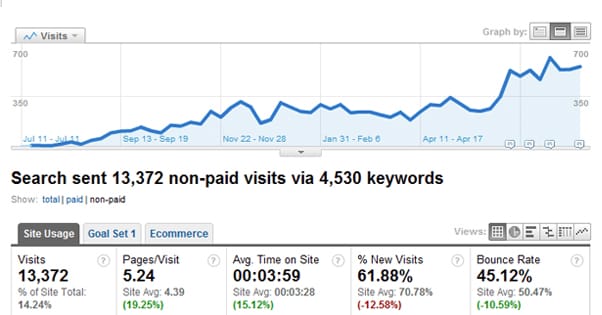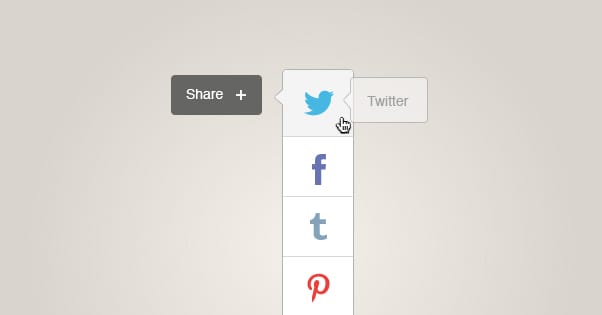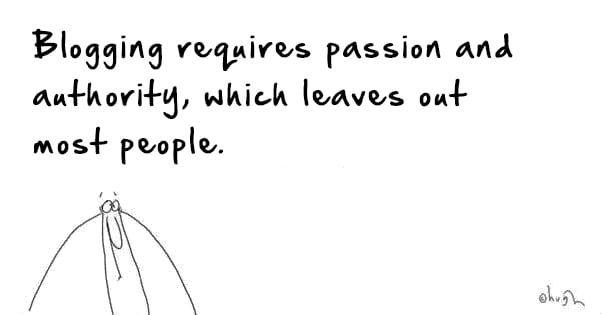Why Business Blogging is The Best Investment You Can Make
Published by James Parsons • Content Marketing • Posted December 29, 2015 ContentPowered.com
ContentPowered.com
“Your business needs a blog if you ever want to compete online.” Ever heard that one before? I have. It’s really common business advice to anyone selling internet marketing services, web design, freelance writing, or anything else that benefits from your business having a blog. Of course a blog manager is going to want you to have a blog, it means you’re more likely to pay them for their services.
They’re not wrong, though. I’m not here to refute their evidence, and not just because I am, yet again, representing a business that benefits from you having a blog. It’s because there are a ton of benefits to having a website with a blog, and it can be done with a pretty minimal amount of effort. You don’t need to have a huge staff of writers or a ton of time dedicated to learning all of the ins and outs of blogging yourself. Outsourcing is always an option.
So, I’m going to cover two broad topics in this post. The first will be the benefits you can expect to pull in from having a blog, assuming you run it right. The second will be ways to make your life running a blog easier, either through education, automation, or outsourcing. Let’s get started!
Blogging Drives Traffic
The number one benefit of blogging is that it drives traffic to your site. It goes like this: people want to know something. People search the internet for a resource that will inform them about that something. They find a website, and read, and learn, and live. They later want to know something else, and they find the same site with a different, valuable resource, and now they recognize that brand and are more likely to buy from it because it’s been good about informing them.
You want to be that brand. You want to provide the content that educates them and makes them aware of who you are. That’s why so many sites blog frequently; the more blog posts they have, the more topics they can cover, and the more people they can attract from different points of need. It’s a game of numbers; more valuable content equals more exposure equals more leads and buyers and fans.
Blogging Fuels Social Media
Blog posts are some of the most central content that is shared around social media. Well, blog posts and pithy memes featuring Minions. Informational content is shared amongst people who like or need to know that information. Content with interesting statistics or interesting depictions of information get shared both amongst industry users who can use it and amongst interested people who find the presentation cool. That’s why infographics are so highly circulated, even when the information presented isn’t necessarily interesting. Tools like Canva make this a lot easier to create without having any Photoshop experience.
Blogging is just part of a robust internet presence, and social media is another huge part. Social media is what drives the best customer interactions you’ll ever have, but without a blog, you lack a lot of the fuel to keep a social profile active. Yes, you aren’t supposed to post your own content non-stop, but you use them for at least some of your posts.
Blogging Provides Education
You might not think education is important, or you might think that other blogs and businesses have it covered, but you’re underestimating how much some people rely on opinions from people – even brands – they trust. People will read 2,000 positive reviews about a product, but if one friend says they had a bad personal experience, it’s outweighed.
Providing information and education makes you a person that people trust. They will treat the things you say as fact, even if they’re biased a little towards your own products, so long as they haven’t been burned by a negative interaction previously.
Education is also important for post-sale support. If you have a blog full of great information, most users will be able to go there to solve their support issues rather than sending returns, calling your support, or leaving negative reviews.
Blogging is Natural Lead Generation
Blogging, done right, is designed to attract the kinds of people most likely to be interested in buying what you have to sell. You identify who they are and what they want, and how your product solves their problems for them. You blog about those problems and using your product to solve them, such that they find your blog post when they search for the problem. They see the solution in action and go on to buy, or at least express interest in a way that helps you connect with them to convert them later.
This is not a replacement for paid advertising, on TV, radio, print, or the Internet in other locations. It is, however, excellent as a landing page and squeeze for people who are interested. A lot of the people who see your ads don’t want to go into your store, but they’re a lot more likely to check out a website. Think of it as a middleman that helps convince them to stop in later.
Blogging Establishes Authority
Who are you more likely to like, as a person; someone who always has a ready answer and a helping hand, or someone who can’t be bothered to waste their time with your petty problems? The first one, right? That’s what you do by establishing a blog. You provide information and help to people, for free. Those people are appreciative, and they associate your business and brand with helpfulness and information.
Blogging also builds your reputation as an authority amongst other businesses and influential people in your industry. They can see that you know your stuff, and are perhaps more willing to associate with you in a mutually beneficial way. They might share your blog posts with their audiences, they might refer people to you, and they might even partner with you for something even better.
Blogging Brings Feedback and Inspiration
Blogging is not a one-way street like most advertising. It allows you to interact with your readers and customers, both potential and actual. You get direct feedback, both on your information and on your products.
Your readers are a constant source of inspiration and market research. You can solicit ideas or feedback very easily, and you can even offer potential product ideas to gauge interest. One of the best things you can do is monitor the comments made by your readers to look for pain points that allow you to make another product to sell them.
Blogging Keeps You In Touch With Your Audience
Blogging is a great way to keep up with your audience and the changing opinions they may hold. You can see trouble before it becomes trouble, and you can capitalize on trends before they would normally reach you.
Even better, you can encourage your blog readers to take advantage of sales or events, in-store and online, in ways that benefit you all around. You can write press releases, you can announce new products, you can build hype, and all of it cheaper than you normally can with offline means.
I think that’s enough about the benefits of blogging for now.
Let’s take this one step further. You’re now convinced to need a blog, but you have no idea where to start. This is going to be by no means a comprehensive guide; what it will do is give you a place to start. I’m assuming, as well, that you’re going to at least hire a web developer to do all of the blog design for you, so I don’t need to talk about the importance of things like a good web host or domain name. If you have a blogless website, you should already have these things anyway.
Success Tip: Start with a Goal
The first thing you need for your blog is a goal. What are you trying to accomplish? Are you raising awareness for a cause, one you champion with your business? Are you trying to sell a product or a broad selection of products? Are you providing a service, and is it unique or do you have competition? These are all questions you need to answer. Here are some goals from a list HuffPo published:
- Expressing your brand identity through humor, lifestyle, visual artistry or another form of expression.
- Building a mailing list you can use to communicate with your interested customers.
- Building credibility in a business that wants to boost awareness and credentials with a broader audience.
- Becoming a thought leader in the industry, someone that other businesses look to for guidance and inspiration.
- Gaining a source of data to analyze to learn more about the industry, your products, your audience, and ongoing trends.
And, of course, there’s always the major goal; making a profit selling your products.
Success Tip: Determine a Voice and Tone
When you have a goal, you need to figure out how to convey yourself to best accomplish it. This is largely through voice and tone. Voice is the particular way you speak in your blog posts, while tone is the way you use that voice to convey your ideas. Are you casual, are you formal, are you informative or personal? This will often depend on the type of business you’re running and the type of brand you’re building. Someone selling clothing to children doesn’t want to come across like a wall street banker, while someone operating an investment site shouldn’t be writing as if they’re dealing with children.
Success Tip: Decide on a Writer
This is going to be one of your biggest decisions. You have basically four options.
- Do it yourself. This is the most time consuming option, and it potentially means that you’ll have a lower quality blog if you don’t know how to write well for the web. However, it’s the cheapest option in terms of money; you don’t need to pay yourself to write.
- Use content mills. These often churn out middling-at-best writing, but sometimes you’ll find a gem of a writer you can hire directly. Content mills are sites like Writer Access, Textbroker, or Zerys. This will be cheap in terms of both money and time, but will reduce the overall quality of your blog unless you’re lucky or picky.
- Hire a dedicated freelancer or team of freelancers. This will get you better quality writing because these people likely have industry experience or the knowledge and research skills necessary to mimic it. They’re also more willing to adapt themselves to the needs of your blog, because you’re paying them enough to do so. That’s the rub, there; they tend to be somewhat more expensive than the other options. That said, in blog writing, you very much get what you pay for.
- Hire an in-house team. This tends to be the most expensive, because you’re hiring highly trained professionals to be native, sole writers for you. However, they will get you incredibly high quality content. If you have the budget for it, it can very much be worth it.
You can also hire a blog management team that will do everything for your marketing, including running your social media, designing and updating your site, and monitoring analytics. It takes everything out of your hands, but it’s likely going to be significantly more expensive than the other options. There aren’t many small businesses that can afford a dedicated marketing team.
Success Tip: Monitor Feedback and Analytics
Analytics are important to seeing what content is doing well and what isn’t. This information helps you learn about who is reading and engaging with your content, as well as what content is attracting the most engagement. It can also help you see the difference between engaging content and content that converts. Every bit of data you get can influence the way you continue to do business, and smart decisions help you push your profits skyward.
Success Tip: Don’t Forget Marketing
Blogging involves a lot more than just writing and posting content on a website. That’s where many businesses fail with their blogs; they write, they write, and they get nowhere. Well, that’s because you need to promote, share, and market your blog as much as you do your business as a whole. It’s very much not an “if you build it they will come” scenario. If you build it, they won’t know, because you’re two cities over and there’s no word of mouth.
Above all, blogging takes time. The number one mistake novice bloggers make is quitting too soon. Some blogs have taken years to get to the point where they take off. It takes time to build authority, to build a reputation, and you need to be able to take that time.
Success Tip: Brainstorm Content Ideas
When running a blog, even if you only post two articles per week, that’s still over 100 articles per year. If you tried to sit down right now and come up with 100 ideas – or 200, or 300 – for blog posts, could you do it? I couldn’t. That’s why you use tools and assistance.
Luckily for you, we’ve written a detailed post just on the topic of coming up with content ideas. The reality is, there is inspiration all around you, you just need to know where to look and how to put the pieces together.
Success Tip: Post as a Human
This is just a small mechanical tip. No matter who is running your blog, make sure they’re posting as a person, not as a brand. I don’t want to see “posted by Admin” on any of your blog posts. I want to see author pictures and bios, I want to see attributions, I want to see personality. It doesn’t matter if you never write a word of the content you buy; you buy the rights to it, claim it as your own. Heck, you can make up personalities for your posts, that’s just fine. Just post as a human, so other humans can attribute that value to you.
Success Tip: Be Consistent
Pick how often and when you want to post, and stick to it. Start with something simple, like once or twice per week. Post reasonably lengthy articles, 2,500-3,000 words in length, right on time. If you post Monday and Thursday, post Monday and Thursday of every week. Don’t vary your schedule, don’t post 3 times one week and 1 time the next, stick to it. Consistency is incredibly important for building an audience and sticking to your goals.
There’s more to blogging than all of this, of course. That’s why there are dozens of blogs dedicated to blogging itself. This is all just to get you started, to get you pointed in the right direction.













